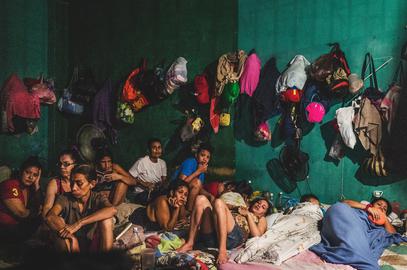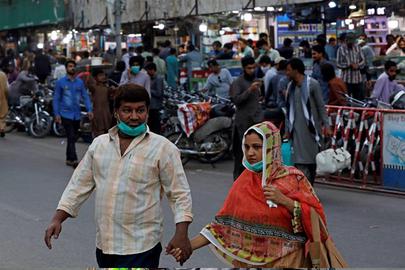This article is part of IranWire's ongoing coverage of Covid-19 disinformation in different countries, in partnership with Health Studio.
By Ximena Herrera for Health Studio
According to the World Health Organization, prisons are among the places most severely affected by the coronavirus pandemic. The Latin American Criminology Society observes that the effects of Covid-19 have been severe in South American prisons; in most of these jails, prisoners and staff are in constant contact and staff lack the training and means to enforce social distancing measures. The prison buildings’ often poor sanitary conditions pose an active threat to life in the face of a pandemic.
A survey on violence and insecurity carried out in 18 countries by the Centre for Latin American Studies found that in 11 states, riots against the new sanitary measures had reportedly taken place in prisons. Inmates have asked for more visitors to be allowed in, especially as they often receive food and medicine from friends and relatives.
The three most basic non-pharmaceutical measures against coronavirus are hand washing, wearing a mask, and social distancing. According to Carlos Nieto, general coordinator of Una Ventana a Libertad, an NGO defending prisoners’ rights in Venezuela, the prison population is more than 200 percent of capacity, with cells meant for 10 often containing up to 100 inmates and many buildings facing water shortages. How can Venezuelan inmates be expected to maintain personal hygiene in such conditions?
“Here in Venezuela,” says Nieto, “there are approximately 110,000 people deprived of their liberty, of whom 45,000 are in traditional prisons, and the remaining 65,000, which represent an inmate surplus of 248%, are in preventive care centers or police cells. These are spaces where inmates should be staying no longer than 48 hours but unfortunately, they have become common prisons.
“All these numbers that I am giving here are not official,” he adds, “because there are no official figures. These figures are the result of research we have conducted."
The Venezuelan government has long ignored the sub-par conditions in the country’s ordinary prisons. The former Venezuelan Minister of Penitentiary Affairs, Iris Varela, stated in July 2020 that coronavirus would not infiltrate Venezuelan prisons because all the necessary preventative measures had already been taken. "The first thing that was done was to suspend visits throughout the country,” she said. “Dedicated spaces were set up to treat suspicious cases, and hand and foot washing protocols were implemented.” The comments came despite insistence from inmates’ families that that the conditions in which prisoners were living were critical.
Varela also proudly reported that her office had advised the International Red Cross on the prevention of coronavirus in prisons around the world. But Nieto has clarified: “Although it’s true that the Red Cross worked with Iris Varela, since it’s the Venezuelan government which authorizes entry into its prisons, this [access] was why they approached Iris Varela. They did not ask her for advice on how to handle Covid-19."
In fact, Nieto adds, the Venezuelan government has taken no precautions beyond the suspension of prison visits, which have since resumed from December. There is no equipment to prevent transmission of the virus and neither inmates nor prison staff are protected. "It is impossible for there to be social distancing because the inmates are piled on top of each other. In some prisons they have to take turns sleeping because not everyone can lie down in the cell.”
With the exception of five members of the Blue Positive organization, a HIV-prevention nonprofit, Nieto says he knows of no case in which coronavirus tests were carried out in a Venezuelan prison. These five were only tested due to public pressure after they displayed Covid-19 symptoms, and after testing positive, were returned to their cells and not isolated, with no further action taken.
“It’s is a miracle that there has not been a Covid-19 epidemic in Venezuelan prisons," Nieto says; had there been it could have been devastating, especially since many inmates are at additional risk because of widespread malnutrition and tuberculosis.
visit the accountability section
In this section of Iran Wire, you can contact the officials and launch your campaign for various problems


























comments